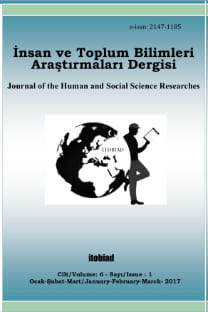Mısır’ın Arab Sonbaharı: Müslüman Kardeşlerin Örgütlenmesi ve Politikalarını Anlamak
Mübarek rejiminin çöküşünden kışa bir süre sonra Müslüman Kardeşler milletvekili ve cumhurbaşkanlığı seçimlerinde kazandığı zaferle birlikte beklenmedik bir siyasi güce kavuştu. Müslüman Kardeşler büyük ölçüde yardım etkinlikleri ve sosyal hizmetleri sayesinde geniş çaplı bir halk desteğine sahipti, fakat halk desteği Mursi’nin göreve başlamasından kısa bir süre sonra ciddi bir şekilde azalmaya başladı. Mursi’nin iktidara gelişimin birinci yıldönümünde, milyonlarca Mısırlı Mursi’yi ve onun yönetimini protesto etmek için sokaklara döküldü. Yoğun sokak gösterileri Mısır’ın demokrasiye geçiş beklentilerini ortadan kaldıran bir askeri darbe ile sonuçlandı. Bu makale Müslüman Kardeşler hareketinin Mısır’da derin devlete karşı izlediği politikaların örgütü 2013’teki kitlesel sokak protestoları karşısında nasıl savunmasız bıraktığını analiz etmektedir. Makale öncelikle Müslüman Kardeşler hareketinin tarihsel evrimini ve Mısır’ın geçiş süreci esnasında örgütün liderleri tarafından alınan kritik kararları ve bunların sonuçlarını ele almaktadır. Son olarak, makale 2013 askeri darbesinden sonra Müslüman Kardeşler’in izlediği politikaları incelemektedir.
Anahtar Kelimeler:
Arap isyanları, 2013 darbesi, siyasi İslam, Müslüman Kardeşler, Mısır
Egypt’s Arab Fall: Understanding the Organization and Policies of the Muslim Brotherhood
The Muslim Brotherhood witnessed an unexpected political power with its electoral victory in legislative and presidential elections soon after the fall of Mubarak in Egypt. Although the Brotherhood enjoyed high popular support, to a great extent, thanks to its charity activities and social services, soon after Morsi took office, this popular support began to diminish dramatically. On the first anniversary of Morsi’s inauguration as president, millions of Egyptians took to the streets to protest against his administration. Massive street protests ended up with a military coup that eliminated the prospects for Egypt’s transition to democracy. This article investigates how the Brotherhood’s policies vis a vis the deep state in Egypt made the organization vulnerable in the awake of street protests in 2013. First, the article makes a brief overview of the historical evolution of the Muslim Brotherhood and then, it explores critical decisions taken by the Muslim Brotherhood leadership during Egypt’s transition and their implications. Finally, it examines the organization’s policies in the aftermath of the coup.
Keywords:
Arab uprisings, 2013 coup, political Islam, Muslim Brotherhood, Egypt,
___
- Al-Anani, K. (2011, June 1). Egypt’s Freedom and Justice Party: To Be or Not to Be Independent. Carnegie Endowment for International Peace. Retrieved from: http://carnegieendowment.org/sada/44324
- Al-Anani, K. (2015). The Anguish of the Muslim Brotherhood in Egypt In Routledge Handbook of the Arab Spring: Rethinking Democratization, (eds.) Larbi Sadiki. New York: Routledge.
- Ashour, O. (2015, March). Collusion to Crackdown: Islamist-Military Relations in Egypt. Brookings Doha Center Analysis Paper, 14. 1-43.
- Blaydes, L. (2011). Elections and Distributive Politics in Mubarak’s Egypt. Cambridge: Cambridge University Press.
- Brown, N. (2012, January). When Victory Becomes an Option: Egypt’s Muslim Brotherhood Confronts Success. Carnegie Endowment for International Peace. http://carnegieendowment.org/2012/01/10/when-victory-becomes-option-egypt-s-muslim-brotherhood-confronts-success-pub-46424
- El-Ghobashy, M. (2005, August). The Metamorphosis of the Egyptian Muslim Brothers, International Journal of Middle East Studies, 37(3), 373-395. doi.org/10.1017/S0020743805052128.
- El-Sherif, A. (2014, July 1). The Egyptian Muslim Brotherhood’s Failures. Carnegie Endowment for International Peace. Retrieved from: https://carnegieendowment.org/2014/07/01/egyptian-muslim -brotherhood-s-failures-pub-56046
- Esposito, John L., Sonn T. and Voll, J. O. (2016). Islam and Democracy after the Arab Spring. Oxford: Oxford University Press.
- Hanna, M. W. (2012, November 27). Morsi’s Majoritarian Mindset. Foreign Policy. Retrieved from: https://foreignpolicy.com/2012/11/27/morsis-majoritarian-mindset/
- Hellyer, H. A. (2012, December 20). Critiquing Morsi’s Egypt. Brookings Institute. Retrieved from: https://www.brookings.edu/opinions/critiquing-morsis-egypt/
- Ikhwanweb. (2011, April 20). MB Chairman: We Seek to Participate, Not Dominate Elections. Retrieved from: http://www.ikhwanweb.com/article.php?id=28432
- Kepel, G. (2003). Muslim Extremism in Egypt: The Prophet and Pharaoh. Berkeley: University of California Press.
- Maghraoui, A. (2014, April 29). Egypt’s Failed Transition to Democracy: Was Political Culture a Major Factor?. E-International Relations. Retrieved from: http://www.e-ir.info/2014/04/29/ egypts-failed-transition-to-democracy-was-political-culture-a-major-factor/
- Mitchell, R. P. (1993). The Society of the Muslim Brothers. New York: Oxford University Press.
- Mogahed, D. (2013, July 25). Deep Runs the Divide. Carnegie Middle East Center. Retrieved from: http://carnegie-mec.org/sada/52493
- Pargeter, A. (2013). The Muslim Brotherhood: From Opposition to Power. London: Saqi Books.
- Pioppi, D. (2013, December). Playing with Fire. The Muslim Brotherhood and the Egyptian Leviathan. The International Spectator: Italian Journal of International Affairs, 48(4), 51-68. doi.org/10.1080/03932729.2013.847680
- Rutherford, B. K. (2008). Egypt after Mubarak: Liberalism, Islam and Democracy in the Arab World. Princeton, NJ: Princeton University Press.
- Saad, R. (2011, February 10-16). Egypt is not Iran. Al-Ahram Weekly Online, 1034. Retrieved from: http://weekly.ahram.org.eg/Archive/2011/1034/sc1801.htm
- Selim, G. M. (2015, Spring). Egypt under SCAF and the Muslim Brotherhood: The Triangle of Counter Revolution. Arab Studies Quarterly, 37(2), 177-199. doi.org/10.13169/arabstudquar.37.2.0177
- Soage, A. B. and Franganillo, J. F. (2010). The Muslim Brothers in Egypt In The Muslim Brotherhood: The Organization and Policies of a Global Islamist Movement, (eds.) Barry Rubin. New York: Palgrave Macmillan.
- Tessler, M. and Brand, L. (1995). Case 215- Democracy and Islam in Arab Politics, Institute for the Study of Diplomacy. Washington, DC: Georgetown University Institute for the Study of Diplomacy.
- Wickham, C. R. (2002). Mobilizing Islam: Religion, Activism, and Political Change in Egypt. New York: Columbia University Press.
- Wickham, C. R. (2013). The Muslim Brotherhood: Evolution of an Islamist Movement . Princeton: Princeton University Press.
- Wilson, G. W. (2012, September 3). From Virginity Test to Power. The Guardian. Retrieved from: https://www.theguardian.com/lifeandstyle/2012/sep/03/virginity-test-to-power
- Zollner, B. (2007, August). Prison Talk: The Muslim Brotherhood’s Internal Struggle during Gamal Abdel Nasser’s Persecution, 1952 to 1971, International Journal of Middle East Studies, 39(3), 411-33. doi.org/10.1017/S0020743807070535
- ISSN: 2147-1185
- Yayın Aralığı: Yılda 4 Sayı
- Başlangıç: 2012
- Yayıncı: Mustafa SÜLEYMAN ÖZCAN
Sayıdaki Diğer Makaleler
Sarıkeçili Aşireti Yörüklerinin Sosyo-Demografik Yapısı (1843 Tarihli Ağlasun Örneği)
Kurmacanın Gerçekliği: Bir Adam Yaratmak Tiyatrosu’nda Kurgu Meselesi
Okul Müdürlerinin Öğretim Liderliği Davranışlarının İncelenmesi
Mutluluk, Gelir ve Demokrasi: Dünya Ülkeleri İçin Yapısal Eşitlik Modeli Önerisi
Tarihsel Bir Perspektiften Türk-Yunan İlişkileri Üzerinde Üçüncü Aktörlerin Etkisi
Maveraünnehir'de İslam Medeniyeti Üzerine Küresel Bir Analiz
Harun ÖZMEN, Muharrem BAKKAL, Süreyya BAKKAL
Harun ÖZMEN, Muharrem BAKKAL, Süreyya BAKKAL
Denizli Kalem İşi Süslemeli Cami Motiflerinin Buldan Dokumasıyla Sembolik Etkileşimi
